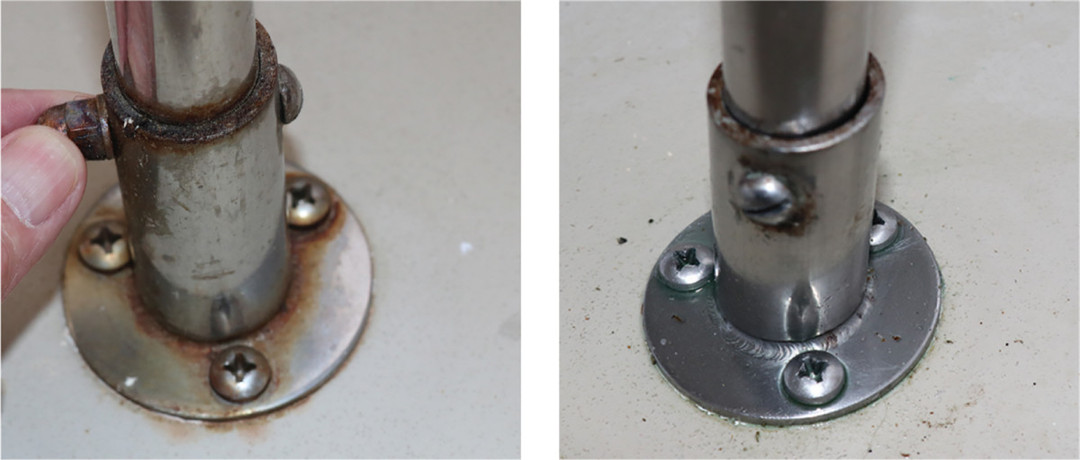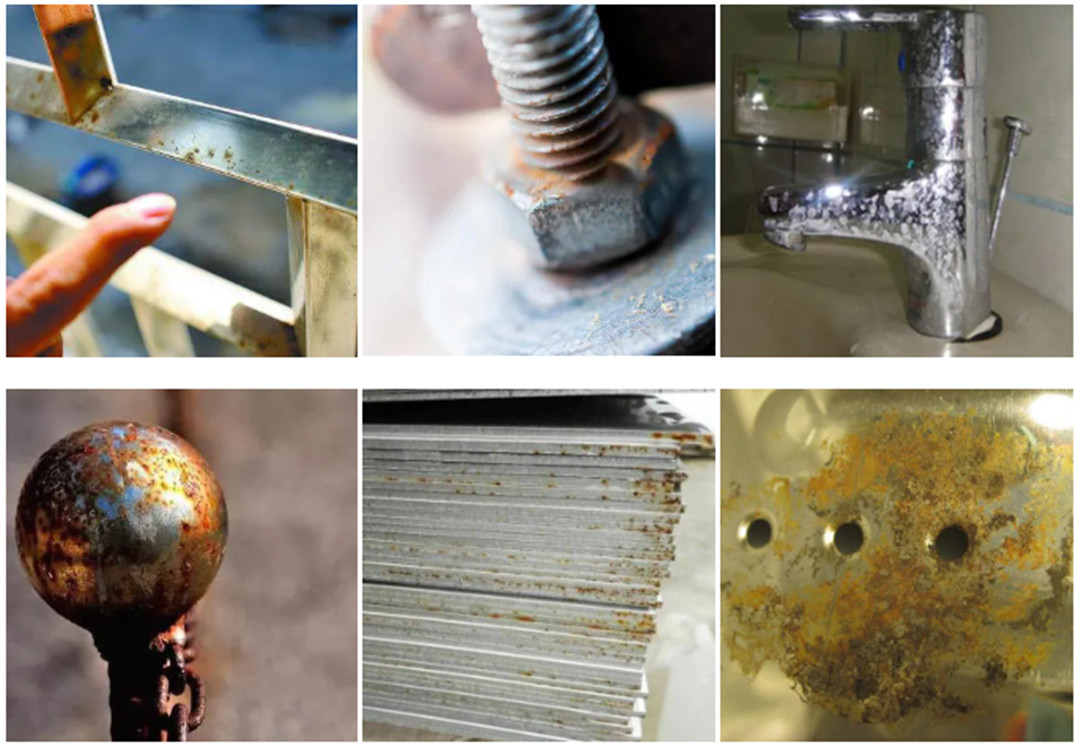Stainless steel is highly regarded for both its corrosion resistance and rust-resistant qualities. Protected by a layer of chromium oxide, stainless steel can withstand some of the most torrential conditions and elements that Mother Nature has to offer. So does stainless steel rust under any circumstances?
Is stainless steel a bizarre phenomenon of ingenuity that never corrodes or oxidizes? While it is much less likely for stainless steel to rust or corrode than carbon steel or alloy steel, it is still a distinct possibility. Many of the reasons why stainless steel begins to rust are due to improper use of materials or negligent cleaning practices.
Understanding the elements behind stainless steel and what subjects it to rusting and corrosion will allow you to prevent stainless steel oxidation in the future. This article will address questions such as “Why does stainless steel rust?” and “What can you do to prevent rusting in the future?”
Table Of Contents
The Many Questions about Stainless Steel Oxidation and Rusting
Does Stainless Steel Rust?
Why Does Stainless Steel Rust?
What is Used to Create Stainless Steel?
Preventing Stainless Steel Oxidation Using Proper Cleaning Techniques
Why Does Stainless Steel Tarnish after Cleaning?
Can Stainless Steel Rust When Using Cleaners like Baking Soda?

The Many Questions about Stainless Steel Oxidation and Rusting
While stainless steel is resistant to most elements, it will rust and corrode under aligning circumstances.

Does Stainless Steel Rust?
To better understand this process, it’s imperative to understand what keeps stainless steel from rusting in the first place. The steel itself is not resistant to corrosion. What makes stainless steel so durable is the chromium oxide layer coating it. Stainless steel uses a coating process known as passivation, which alters the surface of the stainless steel to create a protective layer.
Based on the grade of stainless steel used, this durable coating is replaced with a passive layer of silicone instead, which is not as durable and corrosion resistant as the chromium content. Even if rust does occur on your stainless steel items, you can use a natural rust remover to fix the problem quickly
Why Does Stainless Steel Rust?
One of the biggest reasons stainless steel rusts is due to the different grades of stainless steel and the various kinds of finishes used to coat them. Not all stainless steel is created the same. After all, you wouldn’t use the same type of stainless steel to build a skyscraper as you would to make your turnstile appliances.
Depending on the type of steel used, this will also delegate its role in different conditions and elements. A stainless steel item with a directional finish is the same type of material used in kitchen appliances, meaning you wouldn’t want to leave it outdoors. Assuming this type of stainless steel item contains the same properties as those subjected to harsher elements will result in the incorrect applications of stainless steel.
Not all stainless steel grades are as apparent in their differences as turnstiles and building materials, however. Some outdoor building materials use lower grade steel that would not do well in coastal regions or urban developments.
While a stainless steel building material may last years without corrosion in rural areas or suburbs, it will rust in areas with high winds and corrosion mechanisms like salt and sand. Equally, the corrosion resistant qualities of lower grade stainless steel may not hold up to the pollutants and elements found in more highly developed cities.
What is Used to Create Stainless Steel?
The precise content of stainless steel varies based on the grade of stainless steel. This occurrence is also why stainless steel rust resistance changes from product to product. Most stainless steel uses some degree of iron, which, when exposed to the elements after prolonged periods, can cause iron oxide.
This rusted appearance occurs more frequently in stainless steel products with thinner protective layers. Austenitic stainless steels are used in construction and are considerably stronger and more resistant than other stainless steel products.
Higher grade stainless steels introduce a hard metal known as molybdenum, which increases the stainless steel’s corrosion resistance. These steels are also more likely to have undergone the pickling process, adding an extra layer of protection.

Post time: Dec-21-2021








